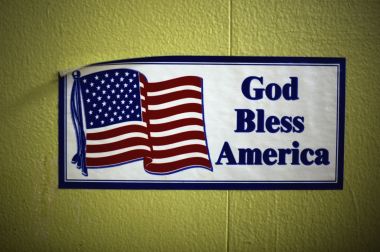Atheists fight to end US ban on holding public office

Atheists are fighting laws in seven US states that prevent them from holding public office, the New York Times reports.
Arkansas, Maryland, Mississippi, North Carolina, South Carolina, Tennessee and Texas all have laws which theoretically prevent someone who does not believe in God from taking office.
Such laws were overturned by the Supreme Court in 1961, and article six of the US Constitution says that "no religious test shall ever be required as a qualification to any office or public trust under the United States".
Even so, in In North Carolina the state constitution still requires that "any person who shall deny the being of Almighty God" be disqualified from office.
Similarly in Arkansas, the law states that "No person who denies the being o a God shall hold any office in the civil departments of this State, nor be competent to testify as a witness in any Court."
One rare example of an attempt to enforce these laws was in 2009 when Cecil Bothwell, who describes himself as a "post-theist", was elected to the city council in Asheville, North Carolina only to find his appointment challenged on the grounds of his lack of faith. In this case, the opposition eventually relented.
The campaign to remove these clauses is led by Todd Stiefel, a secular humanist whose family owned Stiefel Laboratories before it was sold to GlaxoSmithKline for $2.9 billion. Now Stiefel is chairman of Openly Secular, a coalition of organisations that includes The Richard Dawkins Foundation for Reason and Science, which launched in September.
Stiefel told the New York Times: "If it was on the books that Jews couldn't hold public office, or that African-Americans or women couldn't vote, that would be a no brainer. You'd have politicians falling over themselves to try to get it repealed. Even if it was still unenforceable, it would still be disgraceful and be removed. So why are we different?"
According to a blog by Richard Dawkins for the Huffington Post, Openly Secular's member organisations include people of faith who believe in secular governance.
The British evolutionary biologist and staunch atheist said: "We include not only atheists and agnostics, but our allied organizations include religious people of many denominations who cherish the Founding Fathers' ideal of church-state separation."
Although there is a strong secular voice in America, faith and politics are still firmly intertwined. Earlier this year a Pew Research poll found that Americans would be more likely to vote for a president who had smoked marijuana or had an affair than an elect an atheist.











